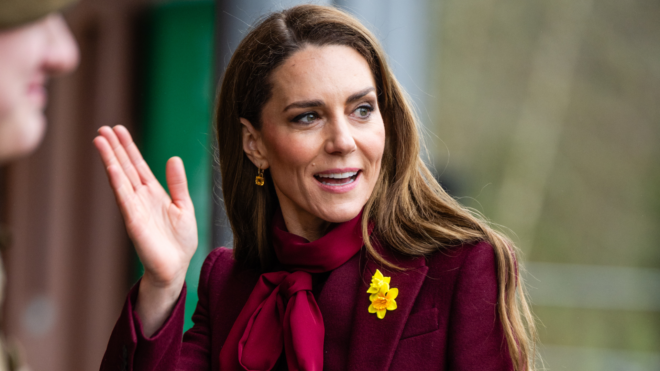I lose a lot of sleep over climate change. [The world's leading climate change scientists ](http://climatecommunication.yale.edu/about/projects/global-warmings-six-americas/) issued a letter of concern recently saying we have three years to safeguard future climate so that it's just enough to keep our kids safe. Not kids of the future, but the ones you're keeping an eye on while they splash in the pool.
As some folks in the U.S. continue to debate the facts, you've probably looked at your own kids and wondered, a little overwhelmed, "What then? What now? What can I do?"
Lisa Hoyos, who founded Climate Parents, wrote in Grist about the moment climate change really hit her. She was listening to the news on the way to a birthday party.
“I had this lightning-bolt fearful sensation … and I was sure that if parents really understood the depths of the threat to our kids, they’d want to do something,” Hoyos said.
But what?
My kids are older and I've been struggling with climate change for decades now. Back in the day, I did things like using cloth diapers rather than disposable. We recycled. We took family trips took planned experiences in wild places, so our kids would learn to respect the Earth. We also told them developmentally appropriate stories about the grown-ups working hard to solve the challenge of climate change.
Nowadays, they know that even young adults and children are raising their voices, because the potential consequences to their generation are so grim. Like teenagers throughout history, they are among the most active, powerful voices.
While they continue to speak up, our family has kept up the good fight on the home front, too. My sons are teens and wellllll out of diapers, cloth or otherwise. We've moved on to other things that we hope have an impact. Here's what I mean:
Travel
Despite close family living in England, we have flown there only once in the five years since they left the States. Our boys also plan to use public transportation, rather than cars, as they get older. Earlier this year, we bought a gently used, 100 percent electric Nissan Leaf.
Lightbulbs
We’ve bought more efficient lightbulbs and replaced our old windows with high-efficiency new ones.
New (old?) heater
Our sons and their brawny teenage friends installed a high-efficiency wood stove (no more gas heat), and we support renewable energy via our electric bill.
Food
We grow some of our own food and buy the rest from local growers. We keep our meat consumption low and local. Eating a plant-based diet, in addition to avoiding flying, buying green energy and driving electric cars (or none at all) are the top 4 things we can all do that have the greatest immediate impact.
Smaller families
As I wrote before, we stopped at two kids. But apparently, we could have done even better and stopped at one (not reversing the decision!). Still, as you're planning your families, know that one less child skyrockets beneficial personal impact on carbon emissions. (But the decision is as complex as it is personal.)
Educate women
On a global scale, family planning is key, as it is a step toward restoring justice and education to women. Educated women have fewer kids, which makes a significant impact on solving climate change.
Holding corporations accountable
I'm also careful not to think what we do is "enough" or even the main focus of our efforts, in the larger scope of climate change. Corporate malfeasance, more than anything, is what has gotten us so close to the brink.
Naomi Klein, author of "This Changes Everything: Capitalism vs. The Climate," points out that without taking on corporate power, our personal actions will fall flat. As with many other emerging alliances, it’s easier than you might think these days. For example, if I drive an electric or hybrid car and/or eat a plant-based diet and/or reduce my overseas flights AND demand that my representatives support climate solutions, I am changing the system.
Support organizations working toward climate justice
The climate justice movement is being led by The Leap, The Climate Mobilization, 350.org and Citizens’ Climate Lobby, as well as the mother-led climate teams like Mothers Out Front and Climate Parents. For teens, see the amazing Earth Guardians and, for kids, Our Childrens’ Trust.
Taking action is not only an antidote to worry, it is the way forward to solutions. So, even though I’ve spent my career as a science writer confronting the most nightmarish stuff about climate change, the truth is, I lay awake tossing and turning a little less often these days.
That’s because parents concerned about their kids’ futures are starting to join with powerhouse organizations dedicated to pushing our corporate and social systems towards a sustainable, healthy, secure climate future
And even though I have a healthy—and sometimes ferocious—dose of justified mama bear concern about my kids’ climate future, I also have hope, confidence and faith in human beings: our profound ingenuity, creativity and compassion, and our ability to rise together to effect change for the greater good.
As Kelsey Wirth, mother of two who and founder of Mothers Out Front said over at Grist, “Having a man who denies climate change science in the White House poses a grave threat to all we hold dear … [but] we have the most potent counter to this: a growing movement of mothers who will stop at nothing to protect their kids.”
Rachel Clark is a science and environment writer, and author of the YA novel "The Blackfish Prophecy, " Fawkes Press, 2016. She's also the author of the Psychology Today blog Mothering Nature. You can follow her on Twitter @MotherngNature



